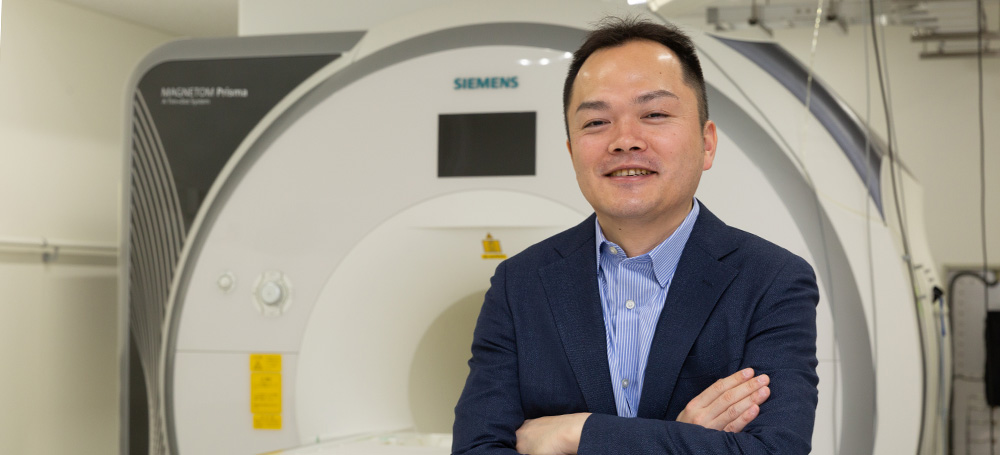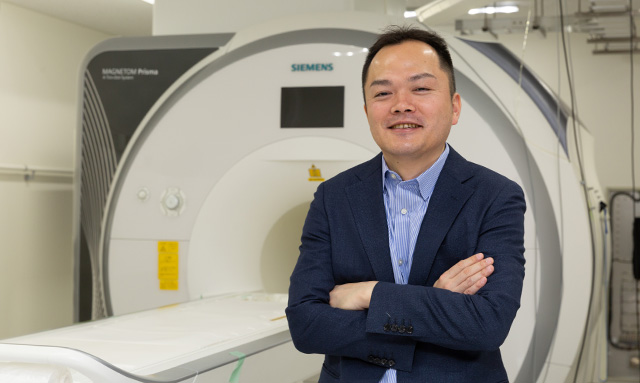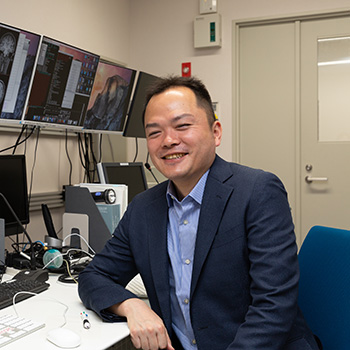Good decisions and good science both start with honesty
Apr. 18, 2019
Amanda Alvarez


Rei Akaishi has not shied away from making bold choices in life. As a high schooler, his interest in developmental disorders led him to a top program in psychology at the University of Minnesota. A desire for a deeper dive into neuroscience drew him to a PhD in that field back in Japan. And now as a new unit leader at the RIKEN CBS-Toyota Collaboration Center,, he is trying to fill the gap between academic research and social change. “Researchers have to be honest and active in following their intellectual interests,” says Akaishi. “I still follow this principle and I think it’s tenacious. And the timing couldn’t be better for me to extend my research and apply it to big social issues”, like changing values in work and life in Japan.
Humans are not so different from animals when it comes to making decisions: they are motivated by the same rewards, like food, and repulsed by fear and anxiety. Making a decision breaks down to balancing the benefits and hazards of exploration and exploitation, says Akaishi. For animals it may just be the difference between foraging outside their normal territory, but for humans the implications can be complex: can we explore and embrace new values or lifestyles, or do we exploit the efficiency and familiarity of our fixed patterns? “In Japan, and globally, social structures and relationships are changing. People need to learn new communication styles and ways to build trust and rapport with unfamiliar people. If they don’t explore, they can miss opportunities,” says Akaishi. The decision to explore is intimately linked with innovative thinking, something Japanese business and society have struggled with.
Akaishi calls himself a “decision (neuro-) scientist”, an investigator of decision-making but also a researcher of the brain. He is keen to emulate Richard Feynman’s approach to physics in the realm of human behavior: observe real phenomena and describe them in equations, in a back-and-forth process. His equations are models of human behavior that try to pinpoint where people deviate from rational behavior. “There’s no purpose for irrationality, but it still happens. Predictions based on rationality can’t explain this,” says Akaishi, citing gaps between idealized decision-makers and real humans observed in the fields of neuroeconomics and decision neuroscience. “It has taken time to really tackle this problem but now irrationality, bias and inertia have resurfaced” as real nuances in decision-making that we can identify in the brain. Intractable questions in behavioral economics from decades ago can now be addressed with measurements and computational models of biased decision-making or inertia, which is the repetition of choices even when you know they have bad consequences. Though everyone can identify with this and it’s “relevant to daily life, and scientifically important, it has only recently become an accepted mainstream topic of investigation,” Akaishi observes.

All of these themes are captured in the name of his new lab at CBS, the Social Value Decision Making Collaboration Unit. The “social value” comes from Akaishi’s goal of making decision-making science accessible to society. “Collaboration” addresses the unit’s position within the larger RIKEN CBS-Toyota Collaboration Center, but also Akaishi’s role that bridges basic and applied research. He views himself as a connector and is a keen user of social media like Twitter. “I think about how we can address network-level issues personally and professionally. For example, how can people behave in a giving way, not just taking from their networks?”
Even through the struggles and pitfalls that any researcher will face, Akaishi counsels intellectual honesty. This was reinforced by a discussion with Stefan Hell, developer of STED microscopy, at the Lindau Nobel Laureate Meeting in 2015. “His ideas about super-resolution microscopy were not accepted and he overcame hardships in his career,” Akaishi recalls. “When I asked him if he thought job seekers should be honest about their scientific ideas even when facing difficult consequences, he said ‘of course’. You may need to present your ideas in forms that are acceptable for others, but the essence is honesty.”



